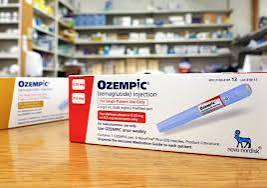Ozempic Alternatives: 5 New Weight-Loss Drugs That Caught My Attention (and Maybe Yours Too)
A few months ago, I found myself in a late-night YouTube rabbit hole—again. I’d just polished off a bag of popcorn I swore I’d only have “a handful†of, and there I was, watching before-and-after stories of people who’d lost 40, 50, even 80 pounds thanks to something called Ozempic. You know that feeling when you’re motivated and guilty at the same time? Yeah, that.
Anyway, I’d heard of Ozempic before—it’s been all over TikTok, Instagram, even in whispered convos at my local café—but what really got me thinking was how many people were desperate for alternatives. Either because of side effects, price, or just not vibing with it. That hit home for me. I’ve struggled with weight on and off most of my adult life, and the idea of a “miracle drug†felt both exciting and… weirdly intimidating?
So, I started digging. Like, really digging. Forums, Reddit threads, clinical trial reports (which—side note—are definitely not bedtime reading), and honest reviews from everyday people. And what I found? There are actually a lot of new kids on the block when it comes to weight-loss drugs. Some promising, some still experimental, and some that made me raise my eyebrows.
Here are 5 Ozempic alternatives that keep popping up in the wellness and medical circles—and my raw, unfiltered thoughts on each:
-1. Mounjaro (Tirzepatide)
I kept seeing this one mentioned right next to Ozempic. And for good reason. Mounjaro’s kind of like Ozempic’s overachieving cousin—it works on two hormones instead of one (GLP-1 and GIP), which apparently helps regulate blood sugar and appetite more effectively.
Honestly? If Ozempic didn’t work for someone, I’d bet money they’d be advised to try this next. The downside? It’s still prescription-only and not cheap unless your insurance is solid.
-2. Zepbound
Okay, confession: I thought this was a sci-fi movie title the first time I saw it. Turns out, Zepbound is actually just a brand name for Tirzepatide (yep, same as Mounjaro) but it’s FDA-approved specifically for weight loss. No need for a Type 2 diabetes diagnosis to get it prescribed. If you’ve been eyeing Mounjaro but can’t qualify—Zepbound might be your in.
-3. Wegovy (Semaglutide)
Here’s the thing: Wegovy is basically the same active ingredient as Ozempic (semaglutide), but at a higher dose and marketed specifically for weight loss.
I remember reading someone’s comment saying, “It’s like Ozempic on steroids.†Maybe not literally, but you get the idea. It has some of the same side effects—nausea, loss of appetite (which I guess is the point?)—but it’s definitely helping a lot of folks drop serious pounds. Personally, I’d be nervous about the stomach stuff, but that’s just me.
4. Retatrutide (Still in trials)
This one’s not available yet, but early research looks crazy promising. Triple-action (GLP-1, GIP, and glucagon receptors), and people in trials have lost 20–24% of their body weight. That’s… huge.
But here’s the catch: it’s still being tested. So for now, it’s more of a “keep an eye on this†situation than something you can actually use.
-5. Orforglipron
Now this one caught my eye for a different reason—it’s oral. As in, no needles. No pens. Just pop a pill.
For someone like me who still flinches during a flu shot, that’s a game-changer. It’s still in the experimental phase, but researchers say it's showing strong results comparable to injectable meds. If it makes it through the FDA process, this could be a big deal.
-So... Are These Drugs the Answer?
Honestly, I’m still torn. A big part of me is hopeful—excited even—about how far science has come. These medications are helping people take control of their health, shed serious weight, and get their lives back. That’s powerful.
But another part of me—maybe the more skeptical, weary version—wonders if we’re just trading one problem for another. What happens when you stop taking them? What about the side effects? And how do you balance medication with real lifestyle change?
I’m not a doctor, just someone who’s been on both sides of the scale, emotionally and physically. I don’t have all the answers, but I know one thing: you have to do what works for you. And sometimes, that means trying new things—even if they sound a little scary.
So here’s my question to you:
If science gave you a tool to finally feel good in your body, would you take it? Or would you wait for something even better?
Let’s talk.




No comments yet
Be the first to share your thoughts!